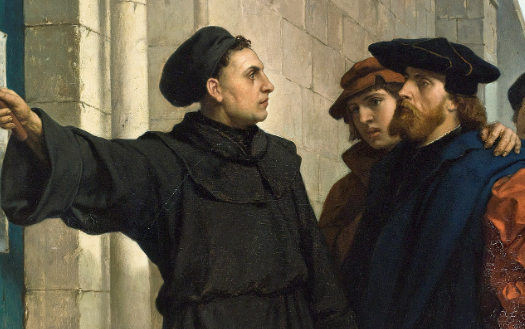Martin Luther’s 95 Theses, posted on the door of the All Saints Church in Wittenberg in 1517, sparked a revolution in Western Christianity.
Challenging the Roman Catholic Church
Luther’s 95 Theses criticized the Catholic Church’s sale of indulgences, a practice that allowed people to pay for forgiveness of sins. This challenged the authority of the Church and highlighted corruption within its ranks.
Sparking the Protestant Reformation
Luther’s actions led to the Protestant Reformation, a movement that sought to reform the Catholic Church and establish new Christian denominations. This split Western Christianity into Catholicism and Protestantism.
Emphasizing Justification by Faith
Luther’s teachings emphasized the concept of justification by faith alone, that people are saved by their faith in God rather than their good works. This idea challenged the Catholic belief in salvation through good deeds.
Encouraging Bible Translation
Luther’s translation of the Bible into German made the scripture accessible to the common people, encouraging them to read and interpret it for themselves. This helped to democratize Christianity and empower individuals in their faith.
Changing Religious Practices
Luther’s reforms led to changes in religious practices, such as the removal of indulgences and rituals that he believed were not supported by scripture. This influenced the development of Protestant denominations and their worship traditions.
Shaping Modern Christianity
The impact of Martin Luther’s 95 Theses can still be felt in Western Christianity today. His teachings on faith, scripture, and reform have shaped the beliefs and practices of millions of Christians around the world.

